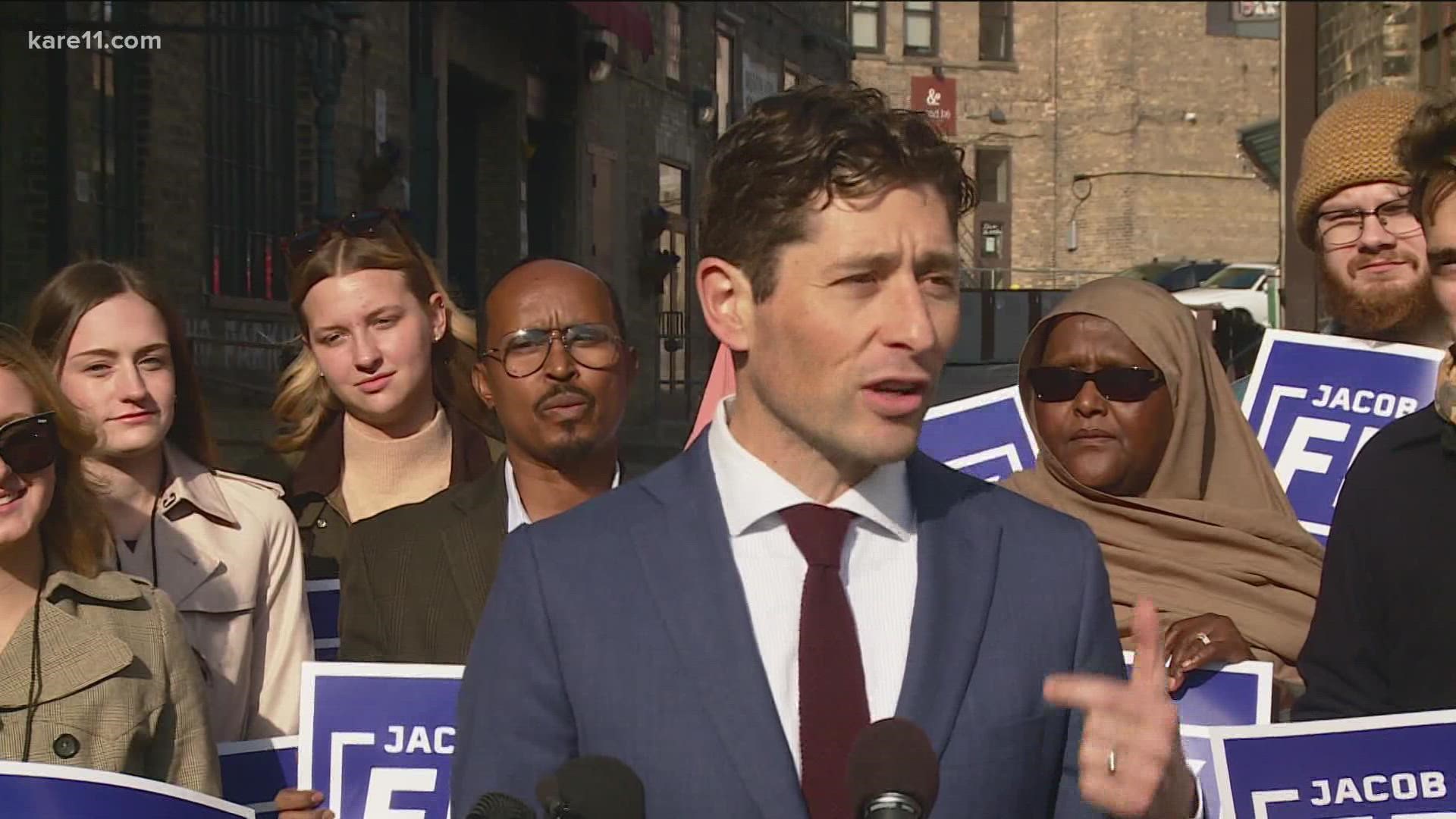MINNEAPOLIS — Minneapolis Mayor Jacob Frey is asking for his friends and foes alike to join him in moving the city past a divisive election and into full recovery mode.
Mayor Frey, fresh from hearing he'd captured a second term, told reporters affordable housing, public safety and officer accountability will remain top priorities in the immediate future.
"Regardless of whether you were for Question 2, regardless of whether you voted for me or somebody else, now is the moment to come together," Frey remarked.
"It’s a moment to unite. It’s a moment to put down the arms and take up a willingness to see true progress."
Question 2 was the proposed city charter amendment to replace the Minneapolis Police Department with a Department of Public Safety, and remove the minimum police staffing levels set in the charter. It was part of a grassroots effort for a more wholistic approach to law enforcement that began in the wake of George Floyd's murder in 2020.
Voters rejected Question 2 amid concerns about dwindling numbers of police officers and five incumbent city council members who had embraced the idea were also defeated. Frey had opposed Question 2, asserting that achieving reform would be possible without ending the MPD as we know it.
"I think something that needs to be recognized perhaps nationwide right now is that cops need to get paid more and fired more," Frey told reporters.
"We need to make sure we’re incentivizing the best possible, most skilled and professional individuals that have deep-seated connections with their communities to want to apply to work for our department."
The incumbent had a clear lead in first choice votes Tuesday night, but he hadn't captured a majority required in the city's ranked choice instant runoff system. Wednesday election workers tabulated second choice voters; reallocating votes of candidates couldn't possibly prevail.
Frey was declared the unofficial winner when it was clear that his closest competitor, former Rep. Kate Knuth, wouldn't have enough second and third choice votes to surpass him. Knuth, who had finished third in first choice voting, did surged to second place on the power of second choice votes.
"We know that true progress is going to take real work, and this is a moment of transformation in our city if we can actually come together, recognizing the magnitude of this particular moment. And the moment is bright."
Frey gave special thanks to Black, Latino and Somali voters who came out strong for him, especially on the Minneapolis Northside. That part of the city also resoundingly rejected Ballot Question 2.
Frey said reforming police officer accountability will also require action at the state an federal level to make disciplinary action more meaningful, something he and others say has been hampered by arbitration rules built into laws and labor contracts.
"You should hold mayors and chiefs around the country for shifting the culture around the police department, and if you’re hold us accountable you should also give us the tools to fire bad cops and have those decisions stick," Frey said, lamenting the situations in the past when officer discipline or termination was reversed in binding arbitration.
Police unions had asserted that arbitration is the same protection many private and public sector employees enjoy, so officers should have the right to appeal discipline that they believe is unfair or disproportionate to the behavior involved.
During the campaign, Frey took heat from opponents for the turnover in the city's Civil Rights Department which is the first stop for officer misconduct complaints under review. Frey said there was a limit to what he could say publicly about personnel matters. He recently named a new Civil Rights director for the city.
Frey will start his second term with more power than previous mayors because voters approved Question 1, a charter amendment making the mayor the chief executive of all city departments. Currently the Minneapolis mayor has direct control over the police department, but all the other department heads answer to an executive committee composed of the mayor and four city council members.
"We can set up a government that is more responsive, more effective, more collaborative," Frey explained.
"That's the direction we need to go and we're taking this approach very, very seriously in getting that work slingshot right off the bat."
Opponents to Question 1 warned that the wrong kind of politician could potentially abuse that power and block individual council members from effectively serving their constituents.

